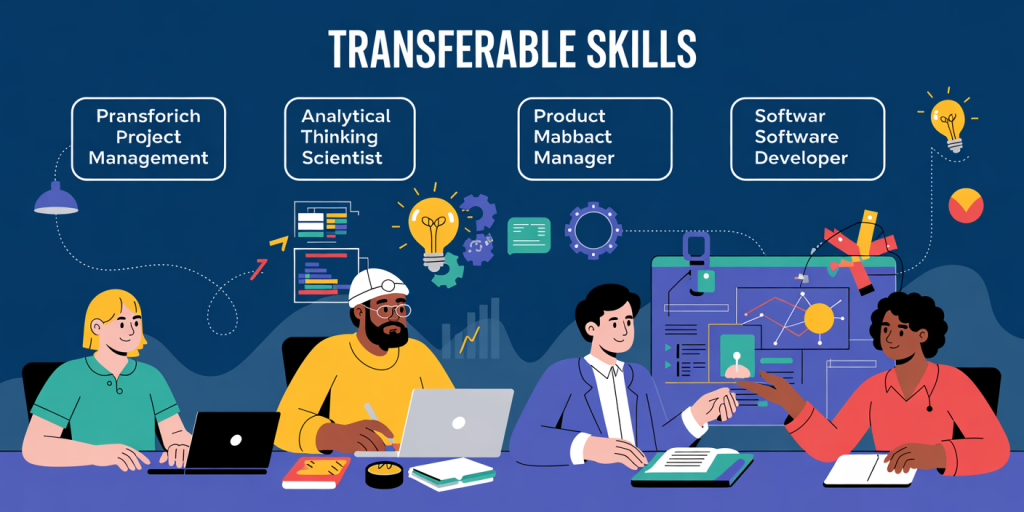How to Transition Your Career to the Tech Industry
In recent years, the technology industry has surged as one of the most dynamic and lucrative fields globally. For professionals seeking a career change, tech offers abundant opportunities with competitive salaries, flexible working conditions, and innovation-driven environments. However, transitioning to tech is often perceived as daunting, especially for those without formal technical backgrounds. This article provides a comprehensive guide on how to navigate this career transformation effectively, featuring practical steps, real-world examples, and data-driven insights.
Understanding the Tech Industry Landscape
The tech industry encompasses a broad spectrum of roles, from software engineering and data science to product management, cybersecurity, and UX/UI design. According to the U.S. Bureau of Labor Statistics, employment in computer and information technology occupations is projected to grow 15% from 2021 to 2031, much faster than the average for all occupations. This growth indicates an increasing demand for skilled professionals, revealing ample opportunities for career changers.

Imagem ilustrativa: A diverse group of professionals from various industries confidently exploring and discussing career opportunities in the tech industry, with icons representing software engineering, data science, product management, cybersecurity, and UX/UI design in the background.
One key factor when considering a shift to tech is understanding the specific sectors and job types that align with your personal interests and skills. For example, a professional with a background in finance might gravitate toward fintech roles or data analytics, whereas someone with a marketing background may find product management or digital marketing within the tech ecosystem appealing. Identifying the right niche is crucial for focusing your training and networking efforts.
Assessing and Leveraging Transferable Skills
Before diving into technical learning, it’s essential to evaluate your existing skills and how they translate into the tech domain. Transferable skills such as problem-solving, project management, communication, and critical thinking are highly valued across tech roles.
Consider the case of Sarah, a former event coordinator who successfully transitioned into UX design. She capitalized on her organizational skills, attention to detail, and client communication experience to manage user research and design workflows effectively. Rather than starting from scratch, Sarah positioned her previous experience as an asset, which eased her integration into the new role.
Another example is John, a mechanical engineer who shifted to software development. His analytical mindset and ability to understand complex systems enabled him to learn programming languages faster and contribute to engineering software projects confidently. This exemplifies how domain knowledge paired with foundational tech skills can accelerate your career shift.
Transferable Skill Equivalent Tech Role Example Benefit in Tech Role
Project Management Technical Project Manager Organizing timelines and coordinating teams
Analytical Thinking Data Scientist Interpreting complex datasets effectively
Communication Product Manager Bridging between technical and business teams
Creative Problem Solving Software Developer Developing innovative software solutions
This comparative table illustrates common transferable skills alongside corresponding tech roles, helping aspirants visualize how their past experiences can bridge to new career paths.
Imagem ilustrativa: A detailed infographic-style scene showing transferable skills like project management, analytical thinking, communication, and creative problem-solving transforming into corresponding tech roles such as technical project manager, data scientist, product manager, and software developer, with visual examples of each.
Acquiring the Necessary Technical Skills

Transitioning into tech often requires gaining specific technical competencies, which can be achieved through various learning formats. Coding bootcamps, online courses, certifications, and even traditional degree programs provide viable pathways, each suited to different learning preferences and time commitments.
For instance, freeCodeCamp and Coursera offer high-quality, accessible courses on programming languages such as Python, JavaScript, and SQL. These platforms allow learners to engage in hands-on projects and build portfolios demonstrating their skills to employers. Alternatively, specialized bootcamps like General Assembly or Flatiron School provide intensive, immersive training with career support, albeit at a higher financial cost.
Concrete steps to building technical skills may include: Learning programming fundamentals relevant to your target role. Working on personal or open-source projects to gain practical experience. Earning certifications such as AWS Certified Solutions Architect or Google Data Analytics Professional Certificate that add credibility. Participating in hackathons or coding challenges to test and improve problem-solving abilities.
Taking the example of Maria, who transitioned from sales to cloud computing, she enrolled in an AWS certification program online over six months, dedicating evenings after her job. Her commitment and certification resulted in securing a junior cloud engineer role at a tech startup within a year.
Navigating the Job Market and Building Professional Networks
Entering the tech job market demands more than just technical proficiency; it’s equally critical to create a professional network and learn how to market yourself effectively. Platforms like LinkedIn, GitHub, and Stack Overflow are essential tools for building connections and showcasing skills.
Building a GitHub portfolio with meaningful projects provides tangible proof of your capabilities. Recruiters frequently review candidates’ repositories to assess coding style, consistency, and problem-solving approach. Additionally, maintaining an updated LinkedIn profile optimized with keywords related to tech roles improves visibility in recruiter searches.
Networking events such as tech meetups, webinars, and industry conferences offer chances to meet professionals and potential mentors. For example, attending Women Who Code events helped Lisa, a former teacher, gain insights and job referrals that led to an entry-level software engineering position.
Below is a comparison of common job search strategies in tech for career changers:
Job Search Strategy Advantages Challenges
Online Job Boards (LinkedIn, Indeed) Wide reach, easy application submission High competition, difficult to stand out
Networking & Meetups Personalized connections, potential referrals Requires effort and time investment
Recruitment Agencies Expert job matching & industry insight Possibly limited to agency’s clients
GitHub & Portfolio Showcasing Demonstrates practical skills visibly Requires consistent maintenance
Leveraging a balanced combination of these methods can maximize your chances of landing your first role in tech.
Overcoming Common Barriers During the Transition
Career shifts can be challenging, especially when facing obstacles such as gaps in technical knowledge, limited experience, or age-related biases. Recognizing these barriers and adopting strategies to overcome them is paramount.
One effective approach is utilizing internships, apprenticeships, or freelance projects to build hands-on experience. These opportunities provide real-world exposure and improve your resume for full-time positions. Additionally, targeted mentorship programs, such as TechStars or mentor match services, enable personalized guidance that can accelerate your learning curve.
Age or career stage can also pose psychological barriers, but numerous case studies defy this notion. Take the example of Robert, who switched to cybersecurity at age 50 after a 25-year career in sales. He invested in certifications, joined local security groups, and ultimately landed a senior analyst role due to his unique perspective and dedication.
Statistics support the viability of late-stage transitions: a 2023 survey by Stack Overflow found that 30% of developers began their coding careers after 30, emphasizing that a strong commitment to learning outweighs age concerns in tech hiring.
Looking Ahead: Future Perspectives in Tech Career Transitions
The future of the tech industry continues to evolve rapidly, driven by innovations such as artificial intelligence, cloud computing, and quantum technology. These trends generate new roles and require continual learning, making adaptability a valuable trait for career changers.
Emerging fields like AI ethics, edge computing, and augmented reality offer novel entry points for professionals with interdisciplinary skills. For example, someone with a background in psychology might contribute uniquely to developing user-centric AI systems, bridging social sciences and technology.
Moreover, remote working models prevalent in tech professions create global possibilities for job seekers. You no longer need to relocate to traditional tech hubs like Silicon Valley or Bangalore to access high-quality tech roles. Remote work broadens access and diversity in the industry, encouraging inclusive career transitions.
In summary, transitioning your career into the tech industry requires careful planning, commitment to acquiring technical and soft skills, and strategic market engagement. By leveraging transferable skills, pursuing practical education, building networks, and remaining adaptable to technological trends, professionals from various backgrounds can successfully enter and thrive in the tech world. The industry’s promising growth and evolving demands ensure that motivated individuals will find rewarding opportunities through thoughtful career reinvention.

